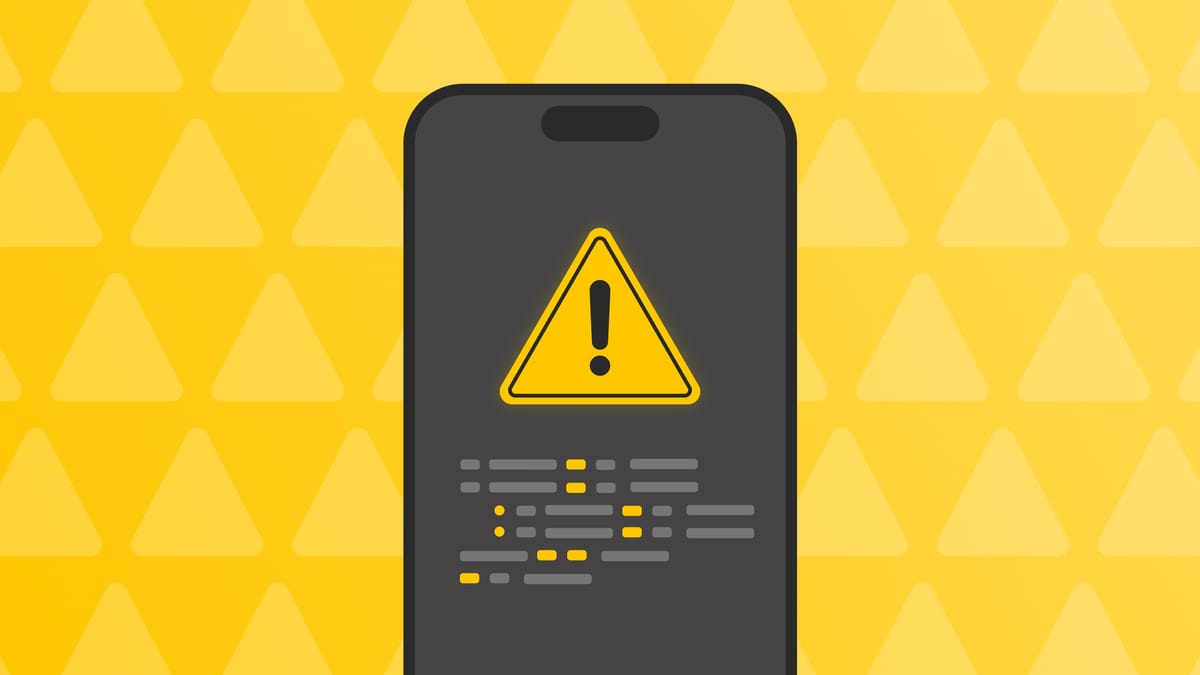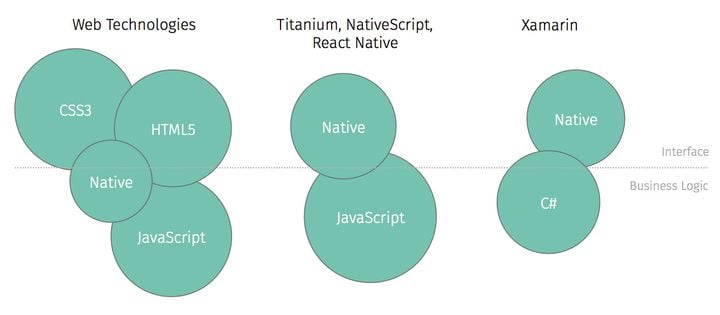10 Mistakes Developers Often Make in App Development (And How to Avoid Them)

Creating an app involves a complex process that demands a mix of creativity, problem-solving skills, and attention to detail. Whether you're working on a mobile app, web app, or desktop software, even experienced developers can sometimes miss important elements that can significantly impact the final product. In this article, we'll take a look at 20 common mistakes that developers often overlook during app development and provide insights on how to avoid them. By addressing these issues early in the process, you can prevent costly rework, performance issues, and user dissatisfaction down the line.
Let’s delve into the 10 most common and less obvious but avoidable pitfalls in app development!
1) No Error Handling Strategies
Developers often prioritize testing scenarios where everything works perfectly, but in reality, errors are common. These errors can include failed API requests, invalid inputs, or network failures. To prevent unexpected crashes and provide valuable feedback to users, it's crucial to implement strong error-handling strategies. This could involve retrying failed requests, providing clear error messages, and establishing backup solutions. Ultimately, these efforts can significantly improve user experience and app reliability.
2) Underestimating Third-Party Dependency Risks
It's a common practice to use third-party libraries to save time, but these dependencies can bring about potential risks. Libraries can be neglected, or updated in a manner that disrupts your app or even exposes security vulnerabilities. Therefore, it is crucial to implement a comprehensive management strategy that includes regular review of third-party dependencies.
3) Neglecting the importance of Accessibility
It is important to prioritize accessibility as a fundamental consideration from the very beginning, rather than treating it as an afterthought. Incorporating features such as support for screen readers, enabling keyboard navigation, ensuring appropriate contrast levels, and implementing other accessibility features is essential to ensure that your application is accessible to everyone, including individuals with disabilities. Failing to address accessibility not only limits the potential audience for your app but also exposes you to potential legal liabilities. Making accessibility a priority is not only the ethically right thing to do but also makes good business sense.
4) No Performance Optimization
Ensuring optimal performance is crucial when developing new features for an application. Slow loading times, inefficient code, and memory leaks can lead to user frustration and tarnish your app's reputation. It is essential to prioritize optimization from the outset rather than treating it as an afterthought.
5) No Scalability Planning
Scalability is a fundamental aspect that is frequently underestimated during the early stages of application development. However, it plays a critical role in the long-term success and growth of an app. Failure to incorporate scalability considerations during the design phase may lead to substantial need for re-architecting and re-engineering in the future. Therefore, it is imperative to proactively plan for the seamless expansion of user base, accommodation of larger databases, and management of increased traffic right from the inception of the app development process.
6) Not regarding App Store Guidelines (for Mobile Apps)
Developers need to carefully follow the strict guidelines set by app stores like the Apple App Store or Google Play Store. Ignoring these guidelines can result in the app being rejected and significant delays in its release. It's important to thoroughly review and adhere to the platform-specific policies and standards to avoid any potentially frustrating setbacks in the app development process.
7) Overengineering Features
Developers sometimes over-engineer solutions, adding unnecessary complexity to future-proof or impress their peers. However, increased complexity can lead to more bugs and make maintenance more difficult. It's better to focus on building lean, scalable solutions that directly address the current problem, rather than trying to anticipate every potential future need.
8) Not Accounting for Offline Use
It's crucial for developers to consider that users might not always be connected to a stable internet network. Thus, integrating features for offline functionality, like local caching, plays a pivotal role in enhancing the user experience and ensuring the reliability of the application, especially in scenarios where internet connectivity is inconsistent or unavailable.
9) Inconsistent or Ambiguous UX Patterns
Consistency in UX patterns is crucial for ensuring that users have a smooth and predictable interaction with your app. When navigation, gestures, or UI components vary unpredictably, it can lead to confusion and frustration among users. This inconsistency makes it difficult for users to learn and adapt to the app's interface and functionality. Therefore, it is essential to maintain a uniform and consistent UX pattern across all screens of your app to enhance usability and user satisfaction.
10) Neglecting Internationalization (i18n)
Developers often create applications tailored for specific languages or regions, but they can encounter difficulties when trying to make their app accessible to a global audience. Failing to consider internationalization early in the development process may result in additional work later on, as developers will need to add support for multiple languages, date formats, currencies, and other crucial cultural and linguistic elements.
Summary
Developing a successful app involves more than just writing code. It requires a holistic approach that includes careful consideration of potential challenges that could affect the app's performance, ability to scale, and overall user experience. By acknowledging and actively avoiding these 10 common (and not-so-common) mistakes in the app development process, you can proactively prevent future issues and craft a more robust and user-centric product. Whether it's prioritizing the resolution of technical debt, ensuring the app is accessible to all users, or effectively managing third-party dependencies, paying close attention to these aspects right from the start will lay a strong foundation for your app's success.
Remember, planning for the long term is just as important as writing great code today!



